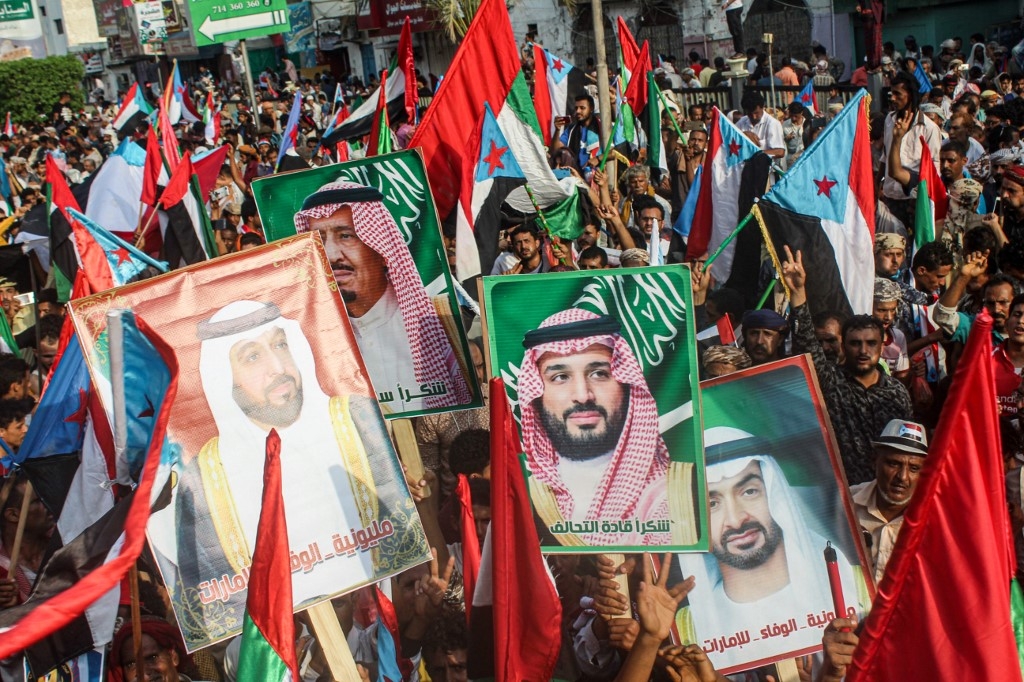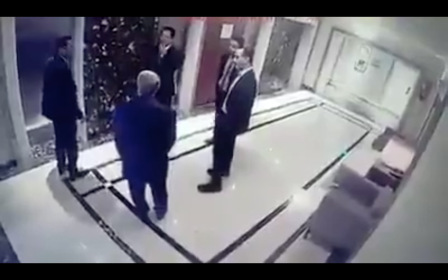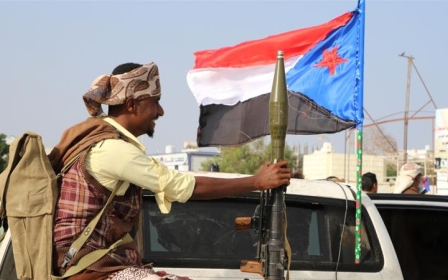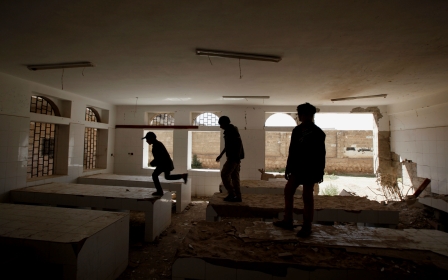Southern separatists accept Saudi forces but Yemen government not welcome

The forces of Yemen's southern separatists are still fanned out across the historic southern city of Aden. And the flag of their backers, the United Arab Emirates (UAE), still flies above the port city's many checkpoints and public buildings this week.
An agreement with their uneasy allies after a violent fallout over the city has paved the way for the entry of Saudi forces into Aden, but it does not appear to have changed who rules the city, which has been under the control of the separatist Southern Transitional Council (STC) since August.
That month, the STC's military wing, the Security Belt Forces (SBF), ousted the Saudi-backed government of President Abd Rabbuh Mansour Hadi, whose government had been operating from Aden after being forced out of the capital Sanaa by Iranian-backed Houthi militias five years ago.
The fighting almost tore apart the Saudi-led coalition that had been fighting the Houthis since 2015.
STC supporters have welcomed an agreement made last week in Jeddah which will see ministries in the newly negotiated government between the STC and Hadi supporters, but remain hostile to Hadi's government nonetheless.
“Saudi forces replaced the UAE forces in the south as part of [last week's] Jeddah agreement and Saudi forces will supervise the situation in Aden and definitely that is a good step,” STC supporter Saeed Bahashwan told Middle East Eye.
“The Saudi forces are in military camps and they guide the SBF when they need advice, but the SBF control the ground and there is no Saudi fighter on the ground.”
Saudi Arabia had hosted indirect talks between the STC and Hadi’s government in an attempt to rebuild its anti-Houthi coalition.
Along with splitting the ministries, the deal would see Hadi's government return to Aden, according to official sources and reports in Saudi media. However, there has been no implementation of the deal.
'If the Jeddah agreement states that the Yemeni government returns to Aden, I confirm that agreement will fail'
- Saeed Bahashwan, STC supporter
Bahashwan said that there is no difference between the UAE and Saudi Arabia, describing both as under the umbrella of the anti-Houthi coalition.
“The coalition came to support us and we welcome any country from the coalition to take lead in the south but we do not welcome the Yemeni government in Aden," he said.
“Hadi’s government invaded the south and they fought southern people for a long time, so we are not willing to accept the Yemeni government again in Aden.”
Early in August, the STC started to attack the government forces, leading the few Yemeni ministers who were actually based in Aden to return to Saudi Arabia, where the Yemeni presidency has been since 2015.
"If the Jeddah agreement states that the Yemeni government returns to Aden, I confirm that agreement will fail, as it is impossible for us to accept the government in Aden," Bahashwan said.
“We will accept southern people who participated in the Sanaa government as civilians in the south but not as officials.”
While Sanaa and much of the north is now under the control of the Houthis, Aden and its surroundings are held by the STC, while only the areas of Shabwa, east of Aden; parts of Marib, near Sanaa; and parts of other provinces are controlled by Hadi's government.
“We are going to liberate Shabwa soon, then there will not be any province to welcome the Yemeni ministers,” said Bahashwan.
STC opponents fear speaking
The STC is not without its own critics in Yemen's south. Maeen, 43, an Aden resident who fought with the Yemeni government against the STC in August 2019, said the separatists' many opponents in the south do not dare to speak.
“I believe that the STC will not continue as it imitates the Houthis in all behaviours and marginalisation is the most dangerous one, as we cannot demand our rights,” Maeen said.
'Saudi tanks and armoured vehicles arrived in Aden over the last two days...is that a signal of peace?'
- Ridhwan Qasim, Aden resident
“The STC represent not the south but [only] itself and we are waiting for the Saudi-led coalition to leave Yemen and to liberate the south from the new dictators,” he added.
He accused the STC's forces of "working as the hands" of the UAE in Yemen and claimed the Jeddah agreement essentially facilitated an STC coup instead of reconciling the groups that had previously been fighting the Houthis.
The agreement signed in Jeddah was supposed to create a government of 24 ministers split between the country's northern and southern governorates, but locals say there is no sign yet of it being implemented.
“I know that the government is in the corner and Hadi cannot refuse any decision by the coalition, but I hope that the United Nations intervene and liberate Yemen from the coalition,” said Maeen.
Residents suspect violence is brewing
Though the warring sides have claimed that they seek peace and the Jeddah agreement promised to deliver it, Aden's residents are less hopeful.
Ridhwan Qasim, 39, said dialogue and concessions are required from both sides but until now, he has only seen signs of more violence.
“New Saudi tanks and armoured vehicles arrived in Aden over the last two days and the pro-Hadi forces are gathering in Shabwa, waiting for the government to direct them to attack Aden, is that a signal of peace?” Qasim told MEE.
The agreement has failed to deliver peace in his view, only confirming the change of leadership in the city.
“The pro-Hadi people in the south did not welcome the Jeddah agreement as they think the STC won the battle, so clashes can break out anytime in the coming months,” Qasim said.
Middle East Eye delivers independent and unrivalled coverage and analysis of the Middle East, North Africa and beyond. To learn more about republishing this content and the associated fees, please fill out this form. More about MEE can be found here.




